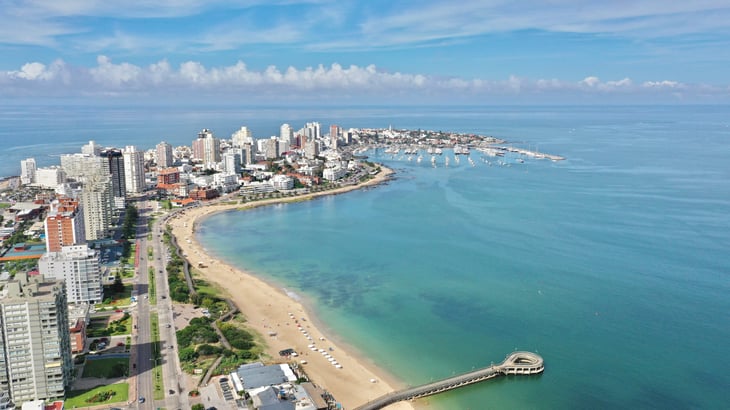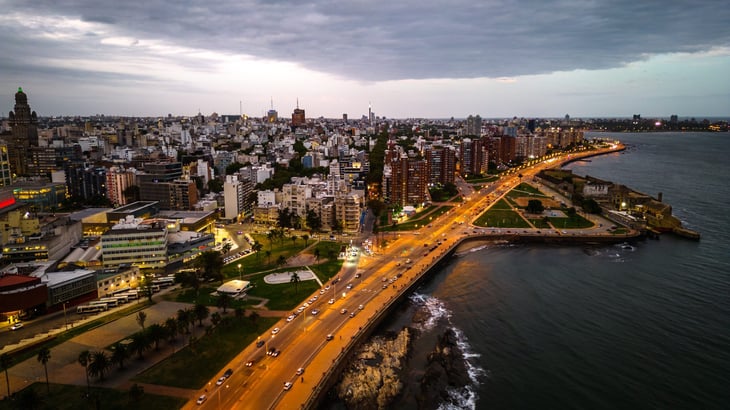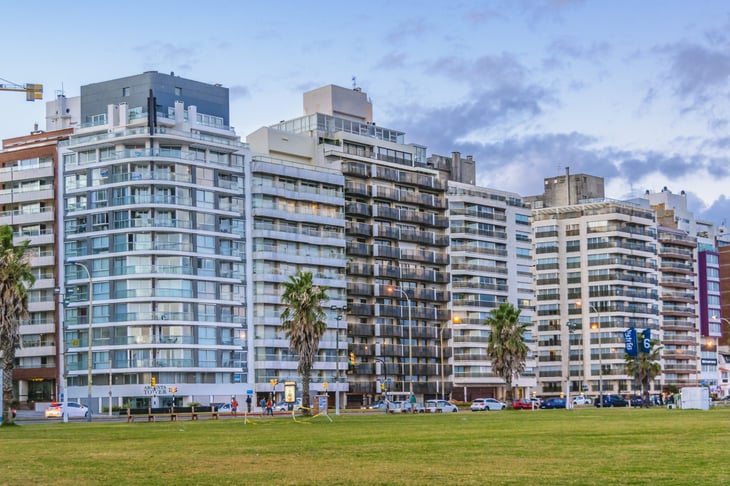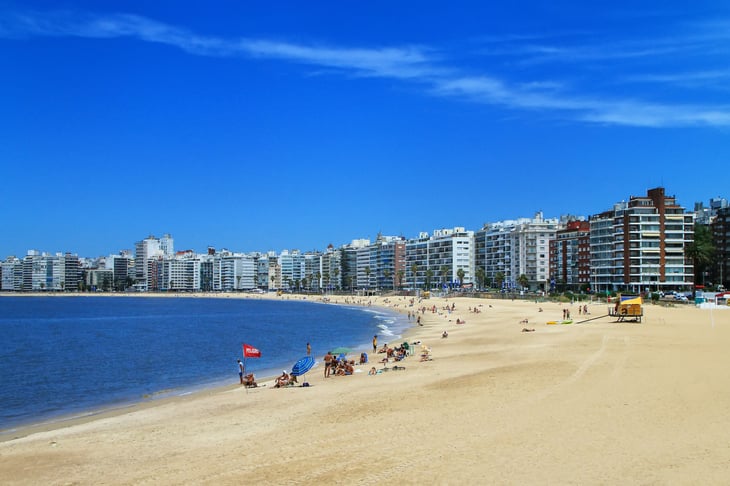
Editor's Note: This story originally appeared on Live and Invest Overseas.
Uruguay is a fascinating, beautiful, and welcoming country. Whether you’re a traveler, a digital nomad (such as myself), or a retiree looking to relocate, it’s time to put this South American gem on your move-overseas radar.
There’s a lot to like about this little country.
A Strong Democracy

For one, it’s considered the strongest democracy in the Americas.
The country came in at No. 11 on the most recent Economist Democracy Index, classified as a “full democracy” with a score of 8.91.
Meanwhile, the United States was listed as a “flawed democracy,” coming in at a sad No. 30 worldwide, just slightly ahead of Botswana.
For those considering escaping the toxic election year environment in the States, a trip to Uruguay may be the breath of fresh air you need.
It’s refreshing to see a government functioning with a diverse array of political parties.
Stability and Progressive Policies

Uruguay also ranks toward the top of the heap in South America for peace, economic freedom, innovation, and income equality.
It also has the lowest poverty rate in Latin America, making for a much more stable situation than many of its neighbors.
The country is known for its strong social safety net and progressive policies.
This includes subsidized health care for the unemployed, low-wage workers, and the elderly, as well as free education at all levels. Abortion is legal in Uruguay, as are same-sex marriage and cannabis.
Whereas political turmoil seems to be the norm with a few of its neighbors (we won’t name names), things are stable in today’s Uruguay.
Montevideo, Uruguay

Montevideo is the nation’s capital. Home to about 40% (1.3 million) of the country’s 3.5 million population, this is the beating heart of Uruguay.
For beach enthusiasts, it’s important to note that Montevideo is on a freshwater river, the Rio de la Plata, while the nearby city of Punta del Este is on the ocean. The latter is known as more of a beach destination, and it’s where the well-to-do from Montevideo prefer to head on weekends and holidays
Going to the beach is still a big part of the culture in Montevideo, though. My wife and I thoroughly enjoyed having Playa Pocitos just a 15-minute walk from our apartment.
It’s just nice to be able to plop your towel down on the beach in the middle of a capital city and relax for a bit.
Big-City Accommodations

As perpetual digital nomads, we typically stick to Airbnb for accommodation as we have built up a ton of good reviews and the weekly and monthly discounts are usually pretty good.
One available monthly rental includes a nice patio in the apartment and a rooftop pool, gym, and movie theater in the building. All that for $1,500 a month. And this is in the capital city, just a few blocks from the Rambla and the beach.
Hit the pavement locally with a decent amount of Spanish (or local help), and you’ll be able to secure a place for $700 to $800 a month.
Health Care Options

For someone coming from the United States or Canada, you will likely notice that many things here are cheaper and many other things cost more.
While things like electronics are certainly more expensive, you’ll generally pay less for the most important things — housing, transportation, and health care.
For insurance, most who relocate to Uruguay end up enrolling in a plan known as a mutalista.
This costs around $70 a month and allows you to visit a specific hospital and associated clinics.
You only need to pay a small copayment each time, and you can also add an emergency response plan for around $30 a month.
Transportation and Food

For city dwellers in Montevideo who are able to get by without a car, your transportation costs can be very minimal. It only costs about $1.50 to take the bus anywhere in the city. The occasional cab won’t break the bank, either, at $5 to $10.
If you shop at local markets and hit the ferias (street markets), you can load up on fresh food for very little. We typically spent $20 to $30 a few times a week restocking the kitchen with essentials like fresh produce, eggs, and coffee.
Going out for something simple, like a chivito with fries and a beer, costs $10 or less. You can always find street food like arepas for a couple bucks. Even ones that are stuffed to the brim with beef and cheese only cost $3.
For more upscale dining, with a bottle of wine, figure on about $60 for two.
Entertainment

When it comes to entertainment options, a museum ticket will cost around $4, a movie ticket around $9, a theater ticket around $12, and a ticket to a soccer match around $15.
Best of all, it’s free to just walk the Rambla, an coastal avenue that runs along the Rio de la Plata and down the entire coast of Montevideo, where you can do some people-watching and plop on the beach for a bit.
OK, it costs a few bucks if you decide to grab a cold drink or snack from one of the many vendors, but that’s still a cheap evening of fun!
For those seeking a country with a stable government, a strong social safety net, and a long coastline, Uruguay is one to check out.





Add a Comment
Our Policy: We welcome relevant and respectful comments in order to foster healthy and informative discussions. All other comments may be removed. Comments with links are automatically held for moderation.